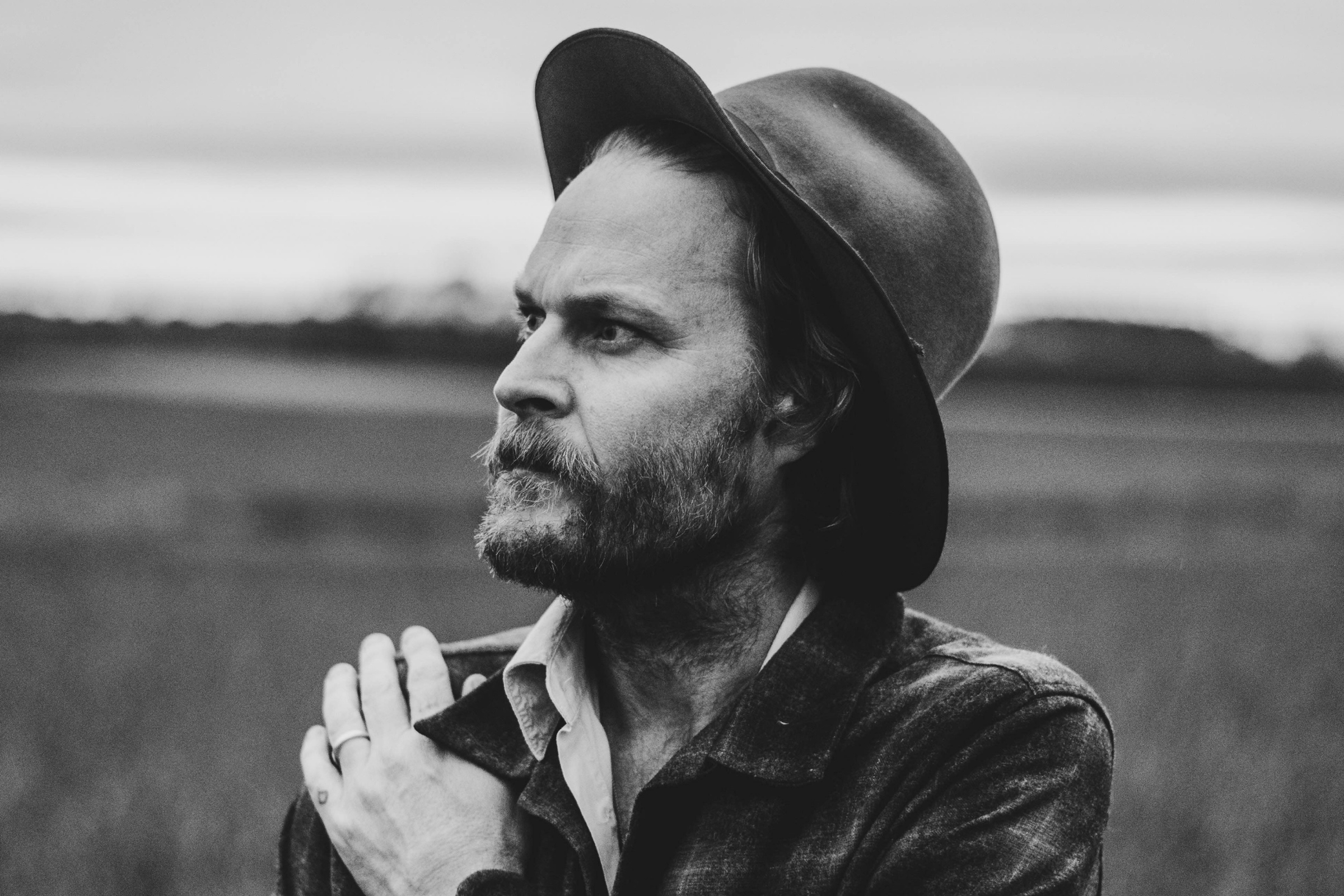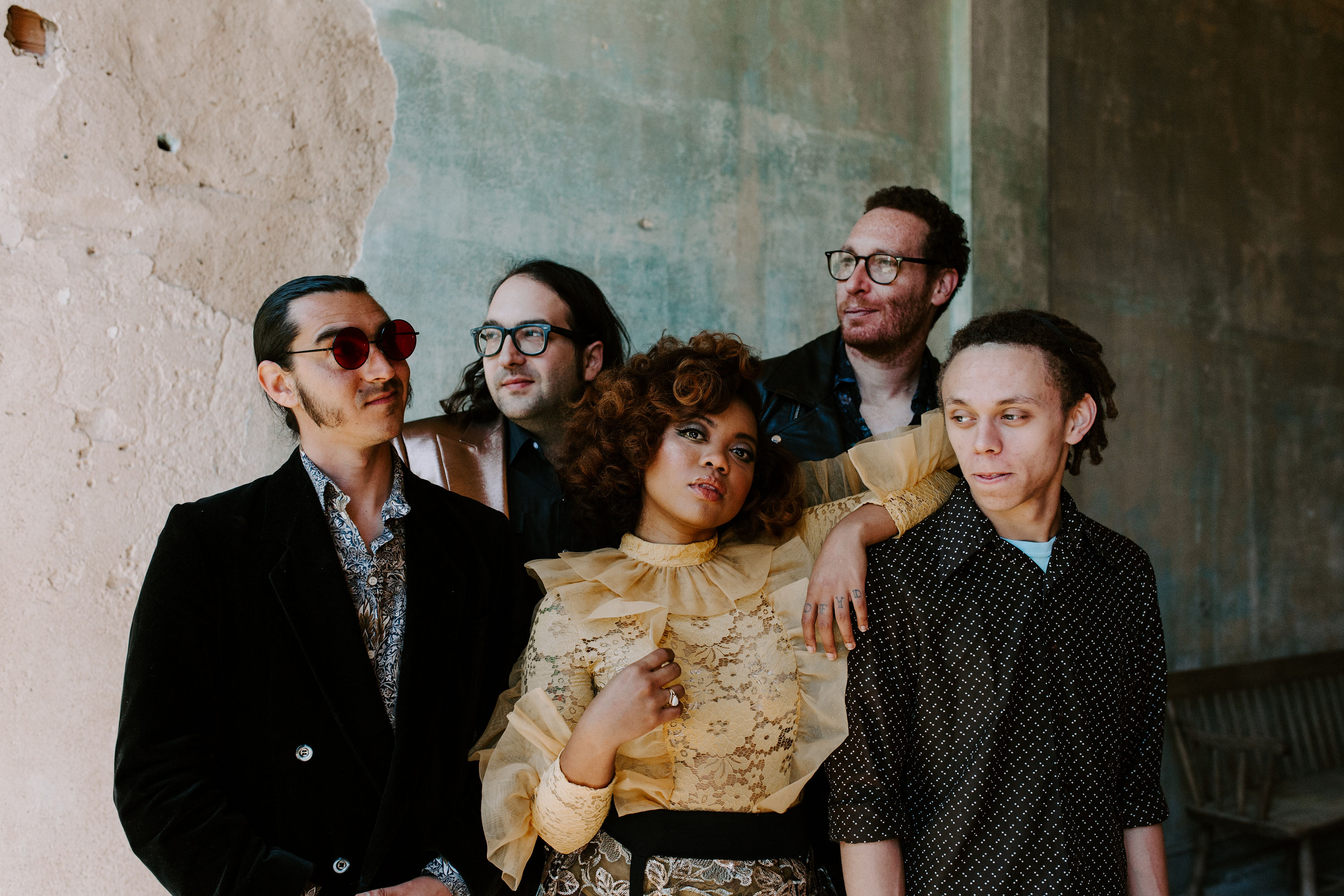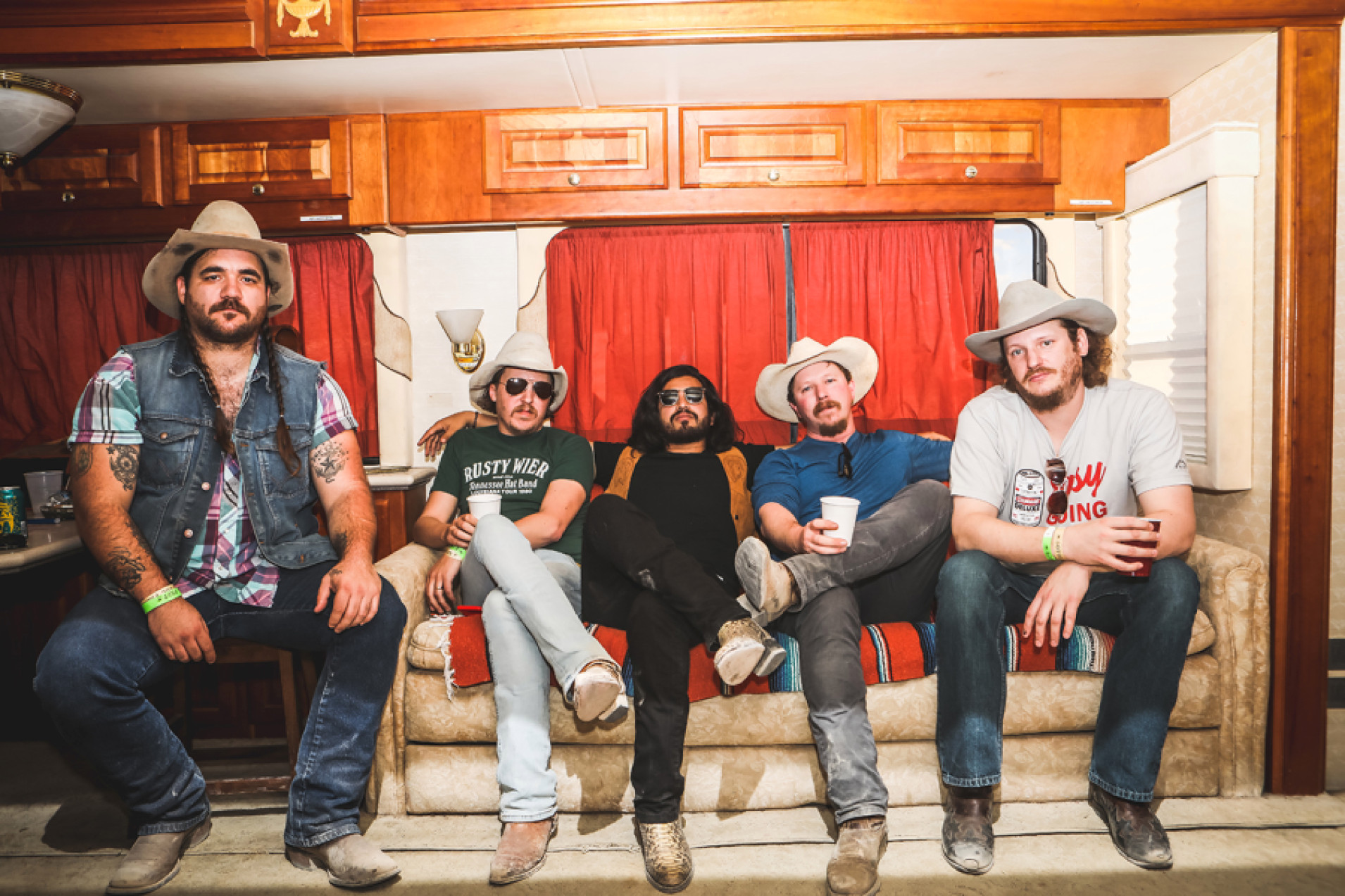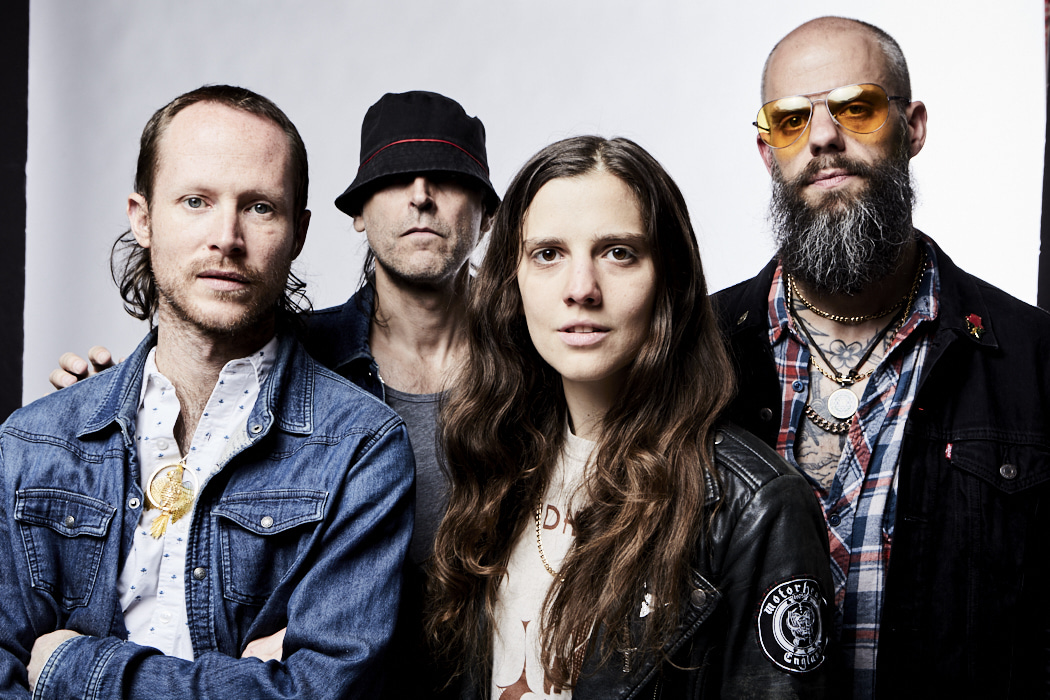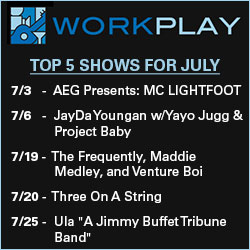Hiss Golden Messenger brings “Terms of Surrender” to Birmingham
Terms of Surrender is the 11th studio album from Hiss Golden Messenger in as many years. That’s not including a handful of EPs and live albums. The Durham, North Carolina band’s latest was heavily inspired, and dedicated to, lead singer MC Taylor’s wife and children, and perhaps more than any of Taylor’s previous work, it begins to search for meaning and hope in a world that Taylor says he felt disconnected from, lonely and lost to himself within.
Hiss Golden Messenger has long played across the state of Alabama, performing at one of the first editions of Secret Stages many years ago in Birmingham (at what was then The Wine Loft), becoming a fixture at Waverly’s Standard Deluxe and in Mobile at Callaghan’s Irish Social Club. Before returning one week after the release of his new record, Taylor spoke about the politics of the South, mental health and finding new ways to connect with his audience.
You’ve been incredibly prolific. Over the past four years or so, you’ve released more albums than we’ve had years. Where does that inspiration continue to come from? Is it the state of the world these days?
[Laughs] I don’t know. I’m not going to put out music that doesn’t move me in some way. So I guess I’m just going to sit down and continue working on stuff that feels like it rings inside of me, and when that stops happening, I’ll be done.
People talk about how prolific I am, but I’ve never felt that busy. It doesn’t ever feel like I’m breaking a sweat; I’m just doing the things that I feel like musicians are supposed to do.
I’ve become a big fan of your enewsletter, “The Kitchen Table Spectacular.” It kind of helps me feel like I know more about you. Was that the goal? Connecting with your audience on a deeper level?
Yeah, I think so. I always wanted to write something like that, and one thing or another always got in the way of it. I finally wrapped my arms around it. When it started out, I didn’t know what the voice of it should be for the first couple. But I feel like I’m finding my way into it tonally.
Through that, you talked at length about the death of David Berman and the mental health within the music community and how deeply it affects people. What do we need to do to take better care of our artists and musicians?
Boy, that’s a great question. Since David Berman passed, one that was even more shocking was a guy named Neal Casal. That one really threw me for a loop. I don’t know; I was talking about this with my therapist this morning, actually. I think we somehow need to figure out a way to value the existential worth of art. It’s hard to do that. You don’t want to put a value on it, but we all understand that art makes the world a better place.
I can’t say that people like David Berman or Neal Casal would not have committed suicide if they were in another line of work. That’s the first thing. I’m hesitant to make an exact correlation. I will say that being a musician, in particular the kind of musician that has to go on the road to make a living, puts a lot of us in really vulnerable situations emotionally. There’s a disconnection from what so many other people are experiencing with that day-to-day travel that can really start to grind you. I’ve definitely experienced it.
Have you and your peers felt more of an obligation in recent years to be on the road all of the time because that’s the way to make money from this now? I feel like when you began, people were buying physical products more, and now it’s more about the shows.
I was not making a living in music at the time when people were selling records. So that’s just something I’ve heard about and maybe witnessed from afar. I can only speak for myself. If I wasn’t traveling – if I wasn’t touring – I couldn’t make a living. I have a lot of shows coming up, and a big part of that is that I want to bring the music out to people that want to hear it. The other part is that I’m trying to make a living. There are times that I wish that I could be home, and I just can’t.
The Durham/Raleigh area has become a hotbed in recent years for Americana and roots music. When did that explode?
There’s a lot going on here, not just musically, but there’s visual art, restaurants – you guys are seeing it in Birmingham, too. A lot of these cities that 15 years ago were completely derelict and shuttered, have become magnets for people that don’t want to be in New York City or San Francisco or Los Angeles. For me, having Durham to come home to is the perfect place. It’s small. I know everybody. My kids are happy here. It’s a good spot.
You’ve spoken a lot about how your audience knows you pretty well and how you can speak pretty freely, but in the same breath, you’ve praised artists like Jason Isbell or Kacey Musgraves or Margo Price for speaking their mind. How important is it for people that have the ability to share new ideas with people that might not agree with them to do so?
I think it’s very important. Those of us that understand the general shape of the world and have voices that people listen to, I think we’re obligated to speak out when we see something that’s clearly not right. There’s a lot of stuff in our country that is clearly broken. It’s our obligation to talk about that stuff. People that get worked up about that stuff often tell an artist to stay in their lane, but man, this is my lane. The world is my lane. I don’t get too much of that, though, honestly. My crowd is pretty wide open.
Why do you think that is?
I don’t know. I think one thing is that I just don’t have the sizeable crowd that Jason does. And you know; Jason is an Alabama boy. I think there are a lot of people that love his music that are conservative. And that’s cool, man. That’s fine. But if you’re going to love an artist and then tell them not to talk about this or not to sing about that, you might not really love that artist.
I saw you play a show with Isbell in LaGrange, Georgia a few years back. If I recall correctly, you did an entire set of new, never before heard material. That’s quite a concept. What inspired you to do that?
I don’t know, I guess we just felt like it [laughs]. I think we probably assumed that most of the people there wouldn’t know who we were anyway, so we didn’t think it was going to be disappointing to too many people. I hope we didn’t disappoint you that night.
No! It was incredible. Is it something that you would do again?
I would love to. It’s harder and harder to do the more people know you and come expecting something. Maybe if we were opening for a huge band again, that would be a chance to play all new music like that.
You’ve had a pretty great relationship with the state of Alabama, playing all kinds of corners of it like Waverly and Mobile and here in Birmingham. How have you navigated that relationship with this typically conservative state while maintaining your own view of the world?
I’ve not run up against anything ever in Alabama. Alabama is a place that I love. I find people to be totally engaged and involved. I think generally speaking, the South is probably the most forward-thinking, progressive place that I know in this country, and it happens to have been gerrymandered into conservatism. If everyone was playing by the rules, I think the South would look a lot different. The other thing about activism in the South is that – fighting for civil rights in a place like California looks and feels a lot different than it does in Birmingham, Alabama. There’s skin in the game in Birmingham that’s different than it is in San Francisco. I’m not saying that we don’t need that kind of activism in San Francisco; but I’m interested in places like Birmingham, like Mississippi, like North Carolina where people are fighting. Real, honest to God fighting.
You said in a recent “Kitchen Table Spectacular” that life was more overwhelming than anyone ever told us. Do you think that’s because the world changed? Or was the world always that way and our parents shielded us from things when we were younger?
I think maybe both. I think all of the above. I think there have been a lot of folks, too, that understand that this world has and will always be overwhelming. I guess I’m a lucky person in that I’m a white man in America. I have it pretty good compared to people of color, to women, to gay or trans folks. I come into this consciousness a bit more slowly than some of those other folks that have had to justify their existence every day. It’s a complicated world, and I think the best that we can do is bring love into it.
Hiss Golden Messenger returns to Saturn on Friday, September 27. Alabama’s own Dee White opens. Doors open at 8 p.m., and the show begins at 9 p.m. Tickets are $22.


